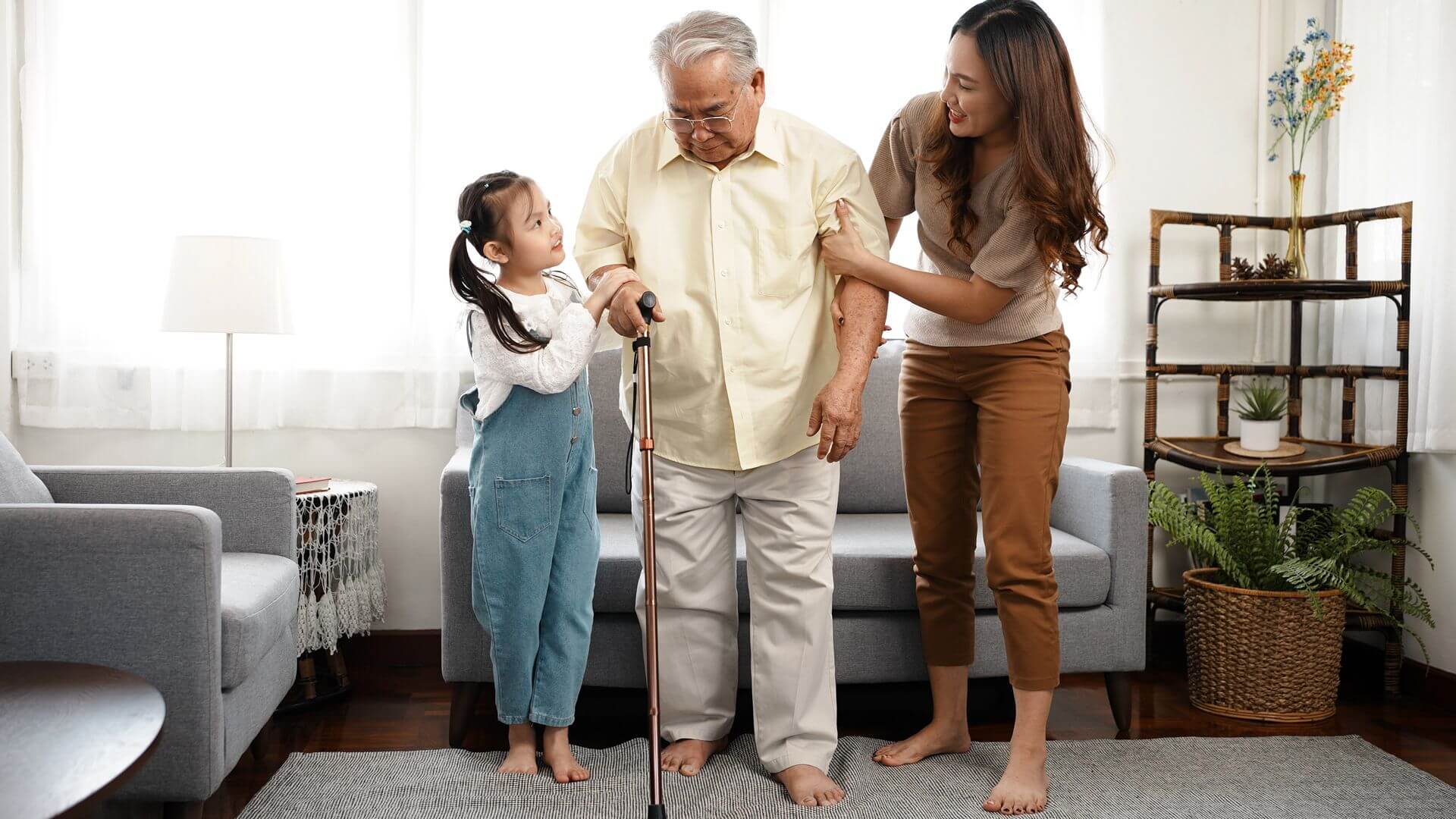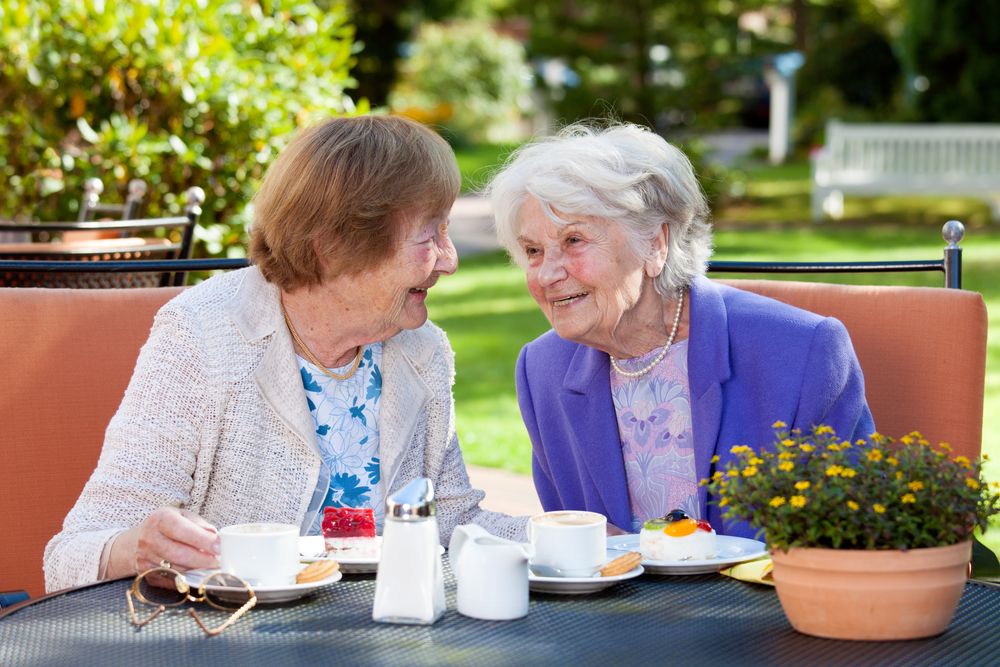Does your partner make you feel guilty, insecure, intimidated, or dependent on them? You could be in a controlling relationship.
A controlling relationship is one where one person uses manipulation and intimidation to create an unequal power dynamic or ‘have the upper hand’ in their relationship.
While it may be harder to identify than physical violence, coercive control is still a dangerous form of domestic abuse – and it’s been criminalised in many Australian states.
It’s not always easy to know whether you’re in a controlling relationship, especially because the person using control will often gaslight their victim into thinking they’re being dramatic or too sensitive.
“Coercive control usually develops gradually over time,” RAQ Clinical Supervisor Angela explains.
“It works by getting you to question your perspective and second-guess yourself. If you question the behaviours, your partner makes you feel it’s your fault you feel uncomfortable, or you’re overreacting.”
Angela explores control in relationships and shares more insights in this blog post, including:
- Examples of controlling behaviours
- Reasons people use control in relationships
- Impacts of control on survivors
- Advice for people experiencing control in their relationship.
Examples of Controlling Behaviours
Coercive control is a form of abuse in and of itself. It can exist on its own without any physical abuse in the relationship, and this may be why it wasn’t legally recognised as abuse until recently. But while it may be harder to identify, coercive control can be just as dangerous and damaging as other forms of abuse.
Coercive control always includes emotional and psychological abuse, and usually creates fear. Over time, it can escalate into physical or lethal forms of abuse, especially if it’s challenged or the controlling person feels they’re losing their control.
In many relationships, it exists alongside physical violence right from the start, and this possibility should always be considered, even if the public face of the controlling person is charming and protective.
These are just some examples of controlling behaviours in a relationship that may or may not be present alongside other forms of abuse (e.g. physical or sexual).
Punishing you when they’re upset – This might include withholding affection, giving you the ‘cold shoulder’, yelling, or talking in a chilling tone if they don’t get their own way.
Checking up on you – Excessively texting or calling you, asking who you’re with and when you’ll be home when you’re out of the house.
Monitoring your activity – Tracking you with apps on your phone, putting surveillance technology on your car, devices or home without your permission and knowledge (stalking).
Isolating you from friends and family – Telling you who you can and can’t speak to, making friends and family uncomfortable when they visit, insisting they join you at social gatherings.
Overactive jealousy and accusations – Making it difficult for you to be friends with anyone of the opposite sex, questioning you about colleagues and assuming you’re having an affair, talking about your behaviour or way of dressing as flirtatious and calling you derogatory names.
Making you feel like you’re on eggshells – Overreacting to differences of opinion you might have, so you start to worry about what you should say and do in their presence.
Regulating your appearance – This could range from making comments such as “That’s a short dress” to outright telling you what you can and can’t wear or how to do your hair or makeup.
Making all the decisions for the household – This might include financial decisions, deciding whether you work or not, whether you can get pregnant or not, what hobbies and activities you can take part in, or insisting on their rules and standards for parenting.
Making you feel incompetent – They might want you to feel like you need them. They might criticise how you do things and take charge, telling you their decisions are for your own good and they know what’s best for you.
Restricting your autonomy – This might include restricting your access to money, transport, or the internet, or discouraging you from working or studying.
Playing pranks or intentionally upsetting you – Doing risky or dangerous activities with you (and/or children, if relevant) and then laughing at your fears.
Regulating your sexual relationship – Determining the type and frequency of sexual activity and calling you names, putting you down or hurting you if you say no.
Gaslighting – Twisting your words or manipulating a situation to get their own way, telling you you’re remembering things wrong and making you question your reality, or telling you you’re overreacting or being dramatic if you get upset by their behaviour.
Why do people use control in relationships?
There are many reasons why someone might assert power and control in their relationship, but a lot of the time, controlling behaviour is a result of fear or insecurity.
Rather than using communication and healthy coping skills, a perpetrator might try to control their partner to protect themselves from hurt or rejection. They only feel safe when they can control everything around them, and they lack the empathy to see that the needs of others may also be important.
Angela discusses some of the most common reasons a person may use controlling behaviours here:
Gendered core beliefs – In heterosexual relationships, the male perpetrator may hold what we call ‘gendered core beliefs’. These beliefs belittle women and see men as superior in physical strength and intellect. Men with these beliefs often think they have the right to control and make use of others in a self-serving manner.
A sense of entitlement – Feeling that they’re superior to others and deserve special treatment because of such things as race, gender, intellect, celebrity status, sporting ability, wealth, status in the political or business world, and cultural and religious beliefs. They feel that it’s their right to take or demand what they want and become angry if this is challenged.
A lack of empathy for the impact of their behaviour on their partner and family.
Protecting themselves from perceived threats – This might be a result of mental health issues or past traumatic experiences that resulted in PTSD or complex trauma.
Fear of losing the relationship – This can be due to previous experiences of difficult relationships, previous infidelity in parents or partner, or childhood abuse. They then lack the communication and healthy relationship skills needed to manage their concerns.
Unhealthy societal beliefs – They might believe in social myths such as ‘the right to have sexual needs met’, that ‘women/other genders can’t be trusted’, and that ‘if I feel someone is going to hurt me, I have a right to fight back in whatever way I can.’
Addiction – Some people use controlling or manipulative behaviours in their relationship to protect an addiction that has a hold on their life (e.g. alcohol, drugs, gambling, porn).
Inability to cope – Many perpetrators have a lack of healthy coping skills in managing anxiety, stress, or frustrations, and exerting control is a way to hold onto the lifestyle or people they view as belonging to them.
Impacts of Controlling Relationships on Survivors
Controlling behaviours can be intentional or unintentional, but either way they can have a devastating impact on the partner, children, and their relationships. Some of the impacts can include:
- Reduced self-esteem and confidence
- Feelings of embarrassment, shame, guilt, failure, and worthlessness
- Withdrawal from the people and things you used to enjoy
- Impacted or lost relationships with friends and family
- Impacted ability to parent and relationships with children
- Feeling like you’re constantly living in fear or ‘fight or flight’
- Becoming short-tempered and irritable with others
- Mental health conditions such as anxiety, depression, PTSD
- Physical health conditions such as poor immunity, illnesses, headaches, stomach aches, or changes in eating and sleeping.
Advice for People Experiencing Control in their Relationship
Angela offers a few tips for anyone feeling controlled by their partner.
Confide in someone you trust
Speaking to a trusted friend or family member is particularly important if you feel unsafe at times or worried for yourself or another member of your family.
Be aware that if you’re experiencing controlling behaviour, your children or other vulnerable members of your family (including elderly parents) are also exposed to this behaviour, and it will impact on their lives as well.
Consider acting early
Dealing with issues when you first notice them might not only improve your relationship, but may also help prevent the behaviour from becoming more frequent or severe and reduce the impact on your children’s development.
There may be certain situations where seeking professional help as soon as possible is the safest option.
Is your partner’s behaviour dangerous for you, your dependants, and your mental health? For example, do you and/or your children feel frightened and on eggshells around your partner?
Is your partner unpredictable? Do they have other issues with alcohol or substance abuse, or significant gambling issues?
Does your partner suggest that you have mental health issues, or twist your words to make you question your reality?
If these things are happening, Angela strongly advises you seek counselling or talk a domestic violence service as soon as possible. There are many different support options available, including websites, helplines, and online counselling.
Get support if you plan to separate
If you plan to separate, be prepared with good supports and a safety plan, as well as professional counselling or legal support, or consider the possibility of a Domestic Violence Order.
Be aware that if you’ve protected your children from the worst effects, they may be surprised when you choose to separate. A controlling person can use this against you, so it’s important to prepare your children for separation to help them process these big changes.
It’s also important to remember that controlling behaviour may not stop if you separate – it can even become more severe in different forms. For example, stalking, harassment through your children, trying to turn your children against you, and ongoing family court battles are some of the common controlling behaviours partners can use when their victim decides to leave. This is why it’s so important to get help even if you’re in the early stages of thinking about separating.
Seek professional help
Counselling or therapy can help you get a better understanding of what’s happening. Counselling can be a particularly helpful option to find solutions for your relationship if the control doesn’t cause you fear.
It can help you explore if relationship counselling may be appropriate, or if encouraging your partner to get counselling or attend a men’s behaviour change group may be useful (if relevant).
If you or someone you know is living with a controlling or abusive partner, help is available.
You can call us on 1300 364 277 for guidance finding the right support for you, or learn about our Domestic and Family Violence Prevention service here.
1800RESPECT: 1800 737 732
DVConnect Womensline: 1800 811 811
DVConnect Mensline: 1800 600 636
Sexual Assault Helpline: 1800 010 120
Kids Help Line: 1800 55 1800
Lifeline: 13 11 14
If you believe you or your children are in immediate danger, please call 000.






